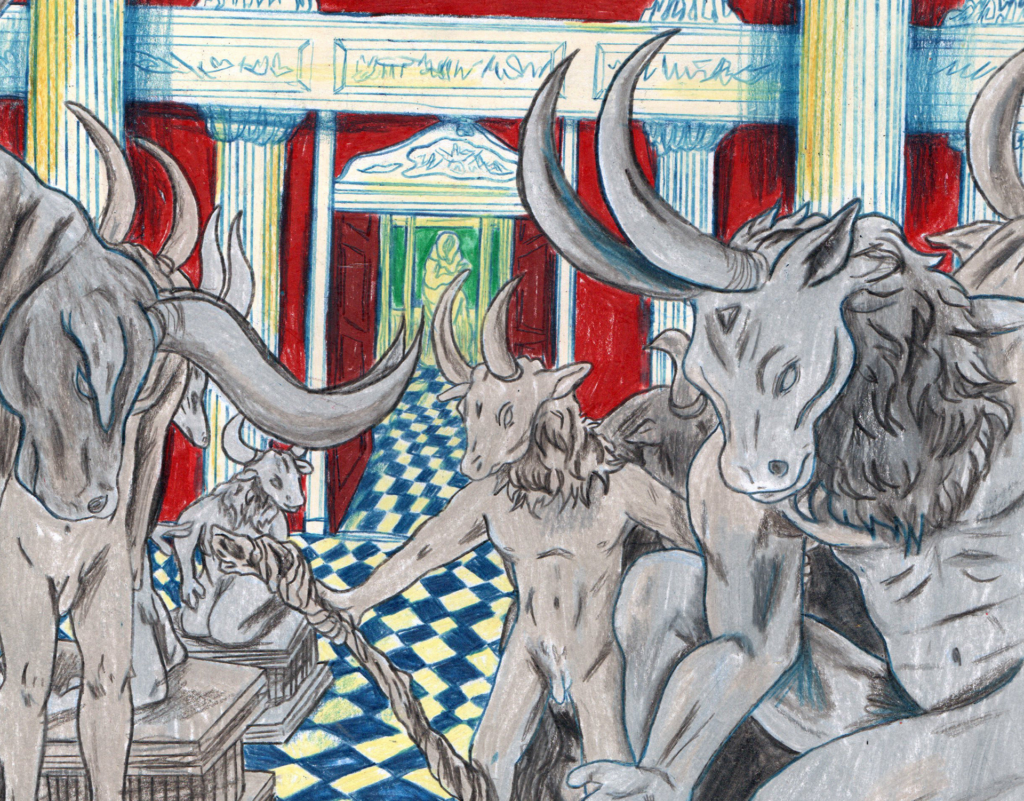In Susanna Clarke’s Piranesi, readers are transported into a world that is as mystifying as it is mesmerizing—a boundless House with an architecture that defies logic, filled with endless halls lined with statues, where the ocean’s tides surge through its lower chambers. Through the eyes of Piranesi, the House’s sole inhabitant, we are introduced to a narrative that is as much about the exploration of this otherworldly realm as it is about the exploration of the self.

Piranesi’s existence within the House is marked by a profound sense of purpose and belonging. His days are spent exploring the vast halls, cataloging the statues, and ensuring his survival against the backdrop of the House’s changing tides. The presence of the Other, the only other living person Piranesi interacts with, introduces a mystery that slowly unravels the reality of Piranesi’s world and his own identity. This unraveling is not just a journey through the corridors of the House but a deep dive into the layers of memory, identity, and the human psyche.
Clarke masterfully uses the House not just as a setting but as a character in its own right—a reflection of the mind’s labyrinthine interior, filled with beauty and mystery, but also with isolation and danger. The narrative is a profound meditation on solitude, the search for knowledge, and the innate human drive to find meaning in existence. The House, with its endless rooms and corridors, becomes a metaphor for the mind itself—capable of infinite creativity and imagination but also susceptible to confinement and isolation.
Piranesi is a testament to Clarke’s imaginative prowess. The novel is imbued with a sense of wonder and an underlying melancholy that reflects the protagonist’s isolation and his deep, abiding love for the House. Clarke’s prose is both elegant and evocative, capable of painting vivid images of the House’s grandeur while also capturing the introspective depth of Piranesi’s character. The narrative is interspersed with philosophical musings that touch upon themes of reality, perception, and the nature of knowledge, inviting readers to ponder alongside Piranesi.

The novel’s allusions to Giovanni Battista Piranesi’s etchings, C.S. Lewis’s The Chronicles of Narnia, and Plato’s allegory of the cave enrich the narrative, adding layers of meaning and inviting readers to explore the connections between art, literature, and the philosophical questions they evoke. Clarke’s engagement with these themes and texts is both a homage and an exploration, using them as a lens through which to examine the nature of the world Piranesi inhabits and the realities of our own existence.
In crafting Piranesi, Clarke has not only created a captivating fantasy world but has also woven a complex tapestry of ideas about memory, identity, and the search for truth. The novel is a journey through a world that is both strange and familiar, a reflection of the unknown spaces within ourselves. It challenges readers to consider the walls we build around our perceptions of reality and the endless possibilities that lie beyond them.
Piranesi is a narrative feat that showcases Clarke’s ability to blend fantasy with deep philosophical inquiry. It is a novel that stays with the reader long after its conclusion, a haunting exploration of the mind’s capacity for wonder and the heart’s capacity for loneliness. In this work, Clarke reaffirms her status as a storyteller of extraordinary talent, capable of crafting worlds that are as intellectually engaging as they are emotionally resonant.









